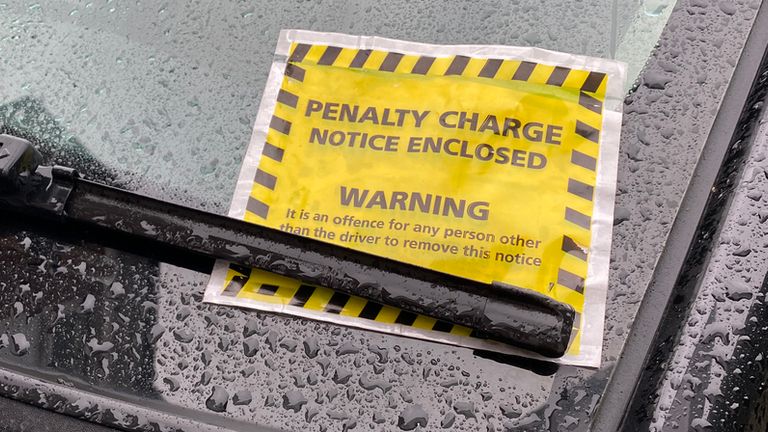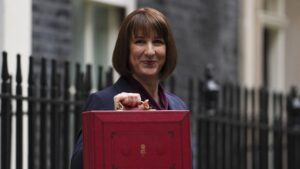Money Problem: ‘I’m being harassed about a private parking fine from five years ago – do I need to pay?’
A reader called Ellie got in touch with our Money team as she’s been receiving harassment from a private car park company over a fine from five years ago. We talk through her rights.

Every week in our Money blog, we answer questions about your financial problems or consumer disputes. This week, a ready asked what they should do if they’re being chased by a private car park over an old fine.
Ellie asked: “I’ve been receiving harassment from a private car park company regarding a parking fine from five years ago. The incident occurred while I was shopping and I had to assist someone who had collapsed. The shop verified this at the time and I’d let the company know when I was chased at the time. I thought the matter was closed. What are my rights in defending myself?”
We spoke to Scott Dixon, from The Complaints Resolver, about this one – and he explains it’s worth first outlining the rules about private parking “fines” in broad terms before answering the specifics of Ellie’s case along the way.
Private companies cannot ‘fine’ you
- Councils can fine you for infringements on public highways (like parking on double yellow lines or in a bus lane) and issue penalty charge notices – these must be paid, or you can appeal it with as much evidence as possible. You risk bailiffs, clamping, your vehicle being towed away and a court order (which could impact your credit score if you lose) if you do not pay, though never pay a council or private parking ticket if you intend to appeal, as payment is considered an admission of liability;
- Private parking operators, which this post will focus on, cannot clamp you and they can’t fine you as such – they issue parking charge notices, which are invoices for an alleged breach of contract for parking on private land.
Read our award-winning Money blog here
Scott says: “They look the same, and there’s a reason for that. A private parking operator’s business model is to extract money from you, and it’s estimated that 80% of motorists pay straightaway due to the legalese jargon.”
Of course, landowners should reasonably be able to charge people to park on their land, so if you’re at fault it might be that the right thing to do is pay up.
But if you think what they’re charging you in their “invoice” is unfair, Scott says you could appeal.
Some advice online suggests you can simply ignore these “invoices” – Scott doesn’t recommend this but we’ll cover this in more depth shortly.
Collect evidence for appeals
This will be key to any appeals or court action – so take photos, get witness statements, keep all correspondence and get proof of any mitigating circumstances.
On Ellie’s case, Scott says: “Do you have the contact details for the person you assisted or any witnesses? You could go back to the shop and ask them if they can assist and provide you with confirmation in writing, although this may be difficult given the time that has elapsed.”
Scott also suggests you submit a data subject access request to the private parking operator and DVLA to access all of your personal data that’s being used in this case.
Read more from this series:
- ‘My workplace is bringing in new clock-in system to pay us by the minute’
- ‘I waited months for a delivery – then they said I needed to pay another £49 to get it’
- ‘Should I top up my national insurance?’
Appealing private tickets
A ticket might be considered unfair if you didn’t actually break any rules, the signage was poor or unclear, you didn’t park on private land or there being some mitigating circumstances such as in your case, Ellie.
Unfortunately, in this instance it’s too late for you to lodge an appeal – but we’ll outline the processes for readers anyway.
There are two parking trade associations in the UK and have a code of practice for their members to abide by.
First, the British Parking Association. You can check its website to see if an operator is a member. The BPA set up the Parking on Private Land Appeals (POPLA) service – but you need to go through the operator’s own process first.
Scott says: “Roughly one in four parking charges are cancelled due to the operator not responding to POPLA and over 40% of appeals made to POPLA are upheld, which evidences my suspicions that private parking operators play the percentages game knowing that many motorists simply pay up even if they believe that they have done nothing wrong.”
The International Parking Community is the other trade association and operates the Independent Appeals Service.
Scott adds: “First stage appeals are often rejected regardless of any mitigating circumstances, so you could have escalated your appeal to the second stage and it should have been upheld.”
You gave 28 days to do this.
If you lose the appeal, you can either pay or defend it if it goes to court.
If the company is not part of a trade organisation
Check to see if a private parking operator is part of a trade body.
If not, they can only access keeper details from the DVLA if you respond to appeal one of their “invoices”.
If you have responded without realising and divulged keeper details, keep in mind that firms who aren’t part of trade organisations may have dubious appeal policies.
Instead of appealing, consider writing to them explaining why you think the parking charge notice is unfair, with evidence to reinforce your case.
Doing nothing
There is plenty of anecdotal evidence online that private firms don’t always consider it worthwhile going to court for small amounts – but there is no guarantee you’ll get lucky,
Scott says: “I recommend you don’t ignore these ‘invoices’, as these private parking operators pursue alleged debts through the courts and you risk incurring a county court judgement which can impact your ability to get loans, mortgages, mobile phone contracts and any credit for many years.
“Trivial amounts quickly escalate into hundreds of pounds when court fees, solicitor fees and debt recovery fees are added.”
It’s important to stress there are some types of letters you could consider ignoring – and some you should definitely not.
“You can safely ignore any debt collector letters,” says Scott, because unlike councils, private parking firms or the debt collection companies they employ cannot use bailiffs.
“These debt collectors are ‘strangers to the debt’ and don’t own the debt or have any powers to enforce it. This means that they are third parties to the alleged debt and have as much power as I do to enforce a private parking ticket.
“The letters use legalese jargon to intimidate and coerce you into paying up with threats of escalating costs and county court judgements. It’s a tried and tested business model and usually works.”
However, Scott says, it is essential you respond to any “letter before claim” or “letter before action”.
“This is the final stage before a case goes to court and needs to be completed prior to a court hearing.”
Court
Statute limitations for bringing a case to court are six years in England and Wales and five years in Scotland from the date of the parking event – so we are still in this timeframe with Ellie’s case.
It would be a civil action – there is no guilty or not guilty, and you can’t get a criminal record.
You will be issued with a county court judgment if the court rules against you. You will have to pay the parking charge notice fine plus some costs, and failing to do so could impact your credit rating.
A private parking operator cannot send bailiffs to your home. Bailiffs are only sent to your home to pursue court orders for non-payment of penalty charge notices issued by councils.
Scott says: “The defence in your case Ellie is that the contract you entered into by parking on private land was frustrated by impossibility due to an unforeseen event through no fault of your own.”
One potential “ace card” that Scott says often succeeds in these kinds of court case is this…
“Ask their solicitor on the day if they have a ‘right of audience’? Basically, do they have the right of audience to represent their client?
“Many solicitors are self-employed and do not have the right to represent these private parking operators. They just turn up on the day they are asked to. If they do not have a right of audience in court, the case should automatically be dismissed.”
Would Ellie win in court?
Scott says: “Evidence is key. If it went to court, it would depend on the evidence presented, hence why you need to submit a data subject access request to the private parking operator and DVLA. You may find key pieces of information you can present in court to prove your case.”
This feature is not intended as financial advice – the aim is to give an overview of the things you should think about.
In cases like the above, you should always seek independent advice from a professional who can look at your case in detail. Submit your dilemma or consumer dispute via:
- WhatsApp us here


